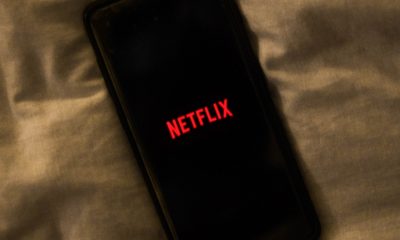Economy
Reclaiming freedom
We might be seeing a significant political change, with the left reclaiming freedom and anti-statism from the right.
I'm prompted to say this by the Black Lives Matter slogan, "defund the police" which invites us to see the state as an oppressor. As Grace Blakeley recently tweeted:
People know that the state is fucking them over just as much as their boss or landlord - in fact, it’s helping their boss and landlord fuck them over even more…Rather than saying ‘just give more state power to the goodies (us)’ we need to start saying ‘put power where it belongs - in the hands of working people’.
If we read this alongside the disappearance of right-libertarians (some of whom discovered that they like racism and inequality more than small government) and emergence of big government Toryism, we see a big change from a few years ago. Back then, it was the right who called for a smaller state and much of the left that wanted a bigger one. Now it is, if anything, the opposite*.
In one sense this is a return to normality. Historically, advocates of freedom were opponents of the existing order, such as Tom Paine, John Stuart Mill and - yes - Adam Smith**. And, of course, Marxists have long regarded the state as "a committee for managing the common affairs of the whole bourgeoisie" and looked forward to it withering away.
Which poses the question: why are things now changing (back)?
One reason is that the left has learned that states are indeed often repressive. I'm thinking here not just of police killings but of the social murder that is austerity and tough benefit sanctions, and the forced deportations of black Britons (something still going on).
Secondly, they've learned that, as Grace says, it is not good enough to "give more state power to the goodies". Yes, New Labour did make significant achievements in tax credits, Sure Start and better funding of schools and the NHS. But many of these have been reversed by the Tories in the subsequent decade. The left cannot pin its hopes merely on winning temporary (and partial) control of the state.
Thirdly, changes within capitalism have changed the state. Of course, capital (pdf) has always wielded power over governments. But there was a time when this was relatively benign. In the post-war war mass production Fordist capitalists needed a mass market and hence an affluent working class. Extractive finance capital, though, doesn't. It needs cheap and plentiful money which fiscal austerity helps provide. General Motors needed a large well-paid working class; Goldman Sachs, not so much. This means there is now more tension between the needs of working people and the function of the state than there used to be.
All of which poses the question. What would anti-statist leftism look like?
Many of you might think the slogan "defund the police" goes too far. No matter: we don't know what's right unless we know what's too much. And what is right - as Elinor Ostrom showed - is that the police should be small and locally accountable. Also, there's a strong case for decriminalizing drugs, in part because it removes a pretext for the police to harass black people.
A high universal basic income would also expand freedom, not just by removing the harsh conditionality of Universal Credit, but also by giving us the freedom to reject exploitative labour or to drop out of the labour market to care for others or to train for better work. As Guy Standing says (pdf), "basic Income’s emancipatory value exceeds its monetary value."
Also, left-libertarianism must empower local communities, and embrace the community wealth-building advocated by Martin O'Neil and Joe Guinan and pioneered by Preston council. In weakening the power of central government, localization mitigates the damage done by Tory austerity. And it also gives local people more republican freedom - the freedom to collectively control more of their own lives.
There's something else, which the Black Lives Matter movement is also highlighting. It's that slavery teaches us something about economics. As Peter Doyle shows in a brilliant paper (pdf), markets produce incentives to undermine others' agency. Although slavery is the most extreme example of this we also see it in everyday capitalist labour markets. As Marx said, when we they start work workers leave behind the realm of equality and freedom and become mere factors of production. Left-libertarianism would put in place institutions to resist this and expand the realm of genuine agency. This would comprise worker coops and more local say over public services.
I say all this not to offer detailed blueprints: Marx was right to be sceptical of these. Instead, the point is that the left can and should pick up the cause of freedom now that the right has abandoned it.
* We mustn't be misled by the right's loud assertion of a right to free speech. What they are really proclaiming is the "right" to spout rubbish without any comeback, which is an altogether different matter.
** If you think the Adam Smith Institute is a representative guide to Smith's thinking, the wallet inspectors would like to meet you.
Economy
Newsletter Special Report: Millions of Jobs Added, Millions More to Go
This is the web version of the WSJ’s newsletter on the economy. You can sign up for daily delivery here.
Employers added 1.8 million jobs in July and the unemployment rate fell to 10.2%, marking only partial progress toward recouping massive losses tied to the coronavirus pandemic. Jeff Sparshott and Greg Ip here to take you through the key numbers.
Maybe Not a V, but Not a U Either
July’s payroll growth, at 1.8 million, still leaves total payrolls 12.9 million lower than in February. And yet if job gains continued at July’s pace, that deficit will be erased by March, 2021. If payrolls reclaim their last peak in 13 months, that would be remarkably fast. It took more than six years after the last recession. So can they maintain that pace? In July, job gains were blunted by a resurgence of the virus in the South and West which put the brakes on economic reopening. With cases slowly trending down now, economic activity should pick up, though that hasn’t shown up yet in private data such as credit card spending. Spending could also take a hit from the recent expiration of enhanced unemployment insurance benefits; Congress is struggling with an extension. And it’s unlikely that the pandemic is going to completely disappear by next year, so neither will the damage to many industries such as tourism and retailing. —Greg Ip
KEY THEMES
Labor-Market Churn
The unemployment rate fell for mostly the right reasons. Some people dropped out of the labor force but not nearly as many as found a job. Measures across the board improved, including the share of workers who wanted full-time work but were stuck in a part-time job.
The number of workers on temporary layoff fell and the number of permanent job losses was little changed last month, suggesting that many workers are getting recalled to old jobs or are able to switch into new ones. “The rate of churn in the labor market remains incredibly high, but a notable positive detail in this month’s report was the downtick in the rate of new permanent layoffs,” economists at Morgan Stanley wrote.
One potentially worrisome sign: The number of long-term unemployed is on the rise. That suggests that some people are at risk of getting locked out of the labor market—and ultimately exhausting unemployment benefits.
Job losses and gains haven’t been evenly distributed. Initially Blacks were less hard-hit than some other racial groups in the early stages of the recession, but the drop in their unemployment rate in July was the smallest among racial groups. —Greg Ip
Some of that was due to growing labor force participation; the Black employment-to-population ratio rose more than for Hispanics and whites. —Greg Ip
Who’s Hiring?
Some of the industries hit hardest by March and April lockdown orders experienced some of the biggest gains last month. Bars and restaurants, retailers, healthcare, laundry services and gambling halls posted big gains from June to July, reflecting efforts to reopen the economy by relaxing social distancing requirements.
While positive, July’s gains only begin to retrace earlier losses. And it’s not clear that the Labor Department data fully captured rising Covid-19 caseloads toward the end of July, which caused state and local governments to halt or roll back reopening plans and consumers to show renewed caution.
Not everything may be as it seems with the monthly figures. Government jobs, mainly in public schools, rose by a seasonally adjusted 300,000 in July. That’s welcome relief for a sector that typically stabilizes the economy in downturns, but which has been hard hit by the pandemic. However, it may be a mirage. On an unadjusted basis public-school jobs continued to decline in July, but the decrease was smaller than seasonal factors expected—because so many jobs have already been cut. Bottom line: If large school districts holding class online this fall don’t rehire staff, job losses will resume in the public sector soon. —Eric Morath
Can We Fix It?
One final note: The Labor Department appears to have largely solved misclassification problems that had artificially suppressed the unemployment rate. In March, April and May the agency counted millions of workers as absent—something that usually applies to vacation or sick leave—when they probably should have been classified as unemployed. That subtracted as many as 5 percentage points from the headline rate. The issue now accounts for less than 1 percentage point, Labor said Friday.
TWEET OF THE DAY
[wsj-responsive-sandbox id = “0” ]
WHAT ECONOMISTS ARE SAYING
“This is not a V-shaped recovery. Adding 1.8 million jobs is not sufficient for any sort of speedy recovery after the astronomical job losses of early spring.” —Nick Bunker, Indeed
“The pace of job growth slowed in July, but the gains over the past three months represent an impressive rebound during the ongoing economic challenges brought forth by the pandemic.” —Mike Fratantoni, Mortgage Bankers Association
“Recovery in jobs to pre-pandemic levels will likely be slow and prolonged, one that will restrain the pace of recovery.” —Rubeela Farooqi, High Frequency Economics
“These numbers suggest that the surge in virus cases since late June has so far not prevented the continued re-opening of the economy at the national level.” —Brian Coulton, Fitch Ratings
“The slowdown we’re seeing is a reminder that a return to economic stability is ultimately hinged on addressing the public health crisis.” —Daniel Zhao, Glassdoor
“The economy is expanding, but the pace of improvement has slowed.” —Jim Baird, Plante Moran Financial Advisors
“The huge remaining level gap in employment—still 12.9m lower than in February before the Covid shock hit—will keep the Fed firmly focused on supporting the recovery.” —Krishna Guha, Evercore ISI
“The payroll count still reveals a slowing in the pace of the labor market recovery. In the absence of additional fiscal aid, the broad economy risks losing momentum as it shifts into the second phase of its rehabilitation.” —Kathy Bostjancic, Oxford Economics
SIGN UP FOR OUR CALENDAR
Real Time Economics has launched a downloadable calendar with concise previews forecasts and analysis of major U.S. data releases. To add to your calendar please click here.
Economy
On woke capitalism
Just because you are an idiot doesn't mean you are always wrong. So it is with James Cleverly's denunciation of Ben & Jerry's "virtue-signalling" after the company spoke out against the government's ill-treatment of migrants.
The thing is, he was right. Ben & Jerry's fine words contrast with the company's reluctance to improve the rights of its own workers until it came under huge pressure to do so - thereby demonstrating the truth of Marx's claim that "capital is reckless of the health or length of life of the labourer, unless under compulsion from society."
But of course, Ben & Jerry's are not alone in their hypocrisy. Amazon (among many other companies) has spoken in support of Black Live Matter despite being a notoriously bad employer. Facebook and Twitter bosses have supported BLM whilst allowing race hate speech on their sites. Starbucks enthusiasm for being "an ally to the lesbian, gay, bisexual, transgender and queer community" is matched by its enthusiasm for avoiding tax. And as Sarah O'Connor points out, several "sustainable" fund managers are better at PR than at actually forcing improvements in working conditions. And so on and so on.
Blackwashing is the new greenwashing. Luke Savage is right. What we're seeing here is "the commodification of social justice" - using virtue-signalling to shift more product. Sometimes, the twin goals of capitalism - raising profits and trying to legitimate the system - happen to coincide.
All of which poses the question: is "woke capitalism" feasible or even desirable?
Certainly, capitalism has historically been associated with patriarchy, racism and slavery - although the contribution of the latter to capitalism is still a matter of debate. But of course, so too have been other modes of production.
The question is: are racism and sexism inherent features of capitalism?
There are two reasons to suspect so. One is that racism fulfils a useful function by dividing the working class and promoting national identity at the expense of class consciousness: Tory and media attempts to stir up anti-migrant feeling whilst employment is collapsing is just the latest example of this.
The other is that in capitalism those with little bargaining power lose out relative to others - which means that women and migrant workers often get a raw deal. In this context, the idea that sexism and racism could be eliminated if only capitalists were more woke is a mistake. Some injustices arise from emergent processes independent of intentions. As Marx wrote:
[The fate of the worker] does not, indeed, depend on the good or ill will of the individual capitalist. Free competition brings out the inherent laws of capitalist production, in the shape of external coercive laws having power over every individual capitalist.
Granted, some have been more optimistic about these external coercive laws. Gary Becker, for example, thought that competition could eliminate discrimination - although it seems it is yet to actually do so.
Let's assume, however, that all this is wrong and that capitalism could be woke, in the sense that there were no gender or ethnic pay gaps, that women and minorities were as likely to achieve prominent positions as white men, and that there was no racism or sexism in the workplace. What then?
Well, every criticism Marx made of capitalism would still be on the table. Marx did not criticise capitalism because of its racism and sexism* - a fact that has historically led some Marxists to understate the importance of these. Instead, his complaints were that it was alienating, oppressive, a force for inequalities in wealth and power, and prone to crises and stagnation. The fact that capitalism currently works to the disproportionate benefit of mediocre white men is but one of its flaws.
Of course, you can deny the force of these criticisms. But the point is that Marx's critique of capitalism is independent of racism and sexism. Even if we had the most perfectly woke capitalism, Marxists would find huge problems with the system. (I think rightly, but that's by the by.)
All of which is to endorse Helen Lewis's point, that there's a big difference between social and economic radicalism. Some - maybe many - capitalists might be the former, perhaps sincerely. But they are not the latter.
* With the caveat that the process of primitive accumulation was often accompanied by racism.
Economy
TikTok dust up
This week’s Goodfellows conversation was a bit more contentious than usual. The most interesting part, I think, is our little dust-up over TikTok, following Niall’s Bloomberg commentary.
As in the rest of this series I am the skeptic of jumping in to Cold War II — or at least against lashing out against all things China without an overall strategy. So I pushed hard on my colleagues — Be specific. Just exactly what is the danger you fear about allowing a Chinese social media company to operate in the U.S?
Let us remember TikTok is a private company, not a direct arm of the Chinese Communist Party. It loudly says it keeps data private and locates that data outside China. Certainly, one could and should ask for long lists of assurances on data privacy to be allowed to operate in the US. Yes, under Chinese law, the Chinese government can demand data. And then we’ll see what happens. But let us not confuse the facts on the ground as they are.
But admitting all that, be specific. Exactly what is the danger to US national security if the Chinese Communist Party gets TikToks data that finds Suzie Derkins really likes fluffy cat videos? What is special about Chinese ownership that makes TikTok super-dangerous?
Judge for yourself, as it is unfair for me to post too many late hits at my colleagues’ responses, but I remain unconvinced. Sure, 40 years from now Suzie might be a Supreme Court nominee and China might release an embarrassing video from her teenage years. But China can archive Reels or twitter or YouTube just as easily.
Many other answers seemed to me to veer off to other issues. Niall thinks TikTok is like crack cocaine, addictive to young and feeble minds, because it has AI algorithms that feed what you want to read. OK, but that has nothing to do with China and national security. Reels will be just as bad. HR is back to countering China’s quest for “economic dominance.” But I guess that means cutting off all Chinese companies, and we’ve had the argument before whether strategic mercantilism or innovation is the right answer there.
The argument broadened to one of general freedom of speech and regulation of the internet. Niall is still worried about all the fake news, and thinks that by regulating internet platforms as publishers all will be well. I notice current publishers are full of fake news too, and that the internet allows much more freedom to respond, and provide a counter-narrative. There is a bottom line, I think, whether one trusts people with freedom of speech and counter-speech, or some hope that some regulatory system, either top-down (which Niall disavows) or through the legal system, being able to sue publishers for wrong stories, will stem fake news and protect people from their feeble-mindedness. It’s a second-best world — I notice all the gatekeepers are just as feeble minded, and trust caveat emptor a lot more, I think, than my colleagues. Facebook’s idea that all postings on covid-19 must conform to current CDC or WHO guidelines, for example, is laughable. The robust and acrimonious debate over policy in the current crisis has been enormously beneficial.
I do think traditional limitations on free speech are allowable, of course. Posting on Facebook “the cops are busy tonight, everybody meet at the Nike store on N. Michigan avenue,” as apparently happened in Chicago last weekend, falls under the crying fire in a crowded theater exemption to free speech.
I won’t prejudice the conversation further. We will surely return to these issues.
Source link
-
 Business4 weeks ago
Business4 weeks agoBernice King, Ava DuVernay reflect on the legacy of John Lewis
-
World News3 weeks ago
Heavy rain threatens flood-weary Japan, Korean Peninsula
-
 Technology3 weeks ago
Technology3 weeks agoEverything New On Netflix This Weekend: July 25, 2020
-
Finance3 months ago
Will Equal Weighted Index Funds Outperform Their Benchmark Indexes?
-
Marketing Strategies7 months ago
Top 20 Workers’ Compensation Law Blogs & Websites To Follow in 2020
-
 World News7 months ago
World News7 months agoThe West Blames the Wuhan Coronavirus on China’s Love of Eating Wild Animals. The Truth Is More Complex
-
Economy10 months ago
Newsletter: Jobs, Consumers and Wages
-
 Finance8 months ago
Finance8 months ago$95 Grocery Budget + Weekly Menu Plan for 8

